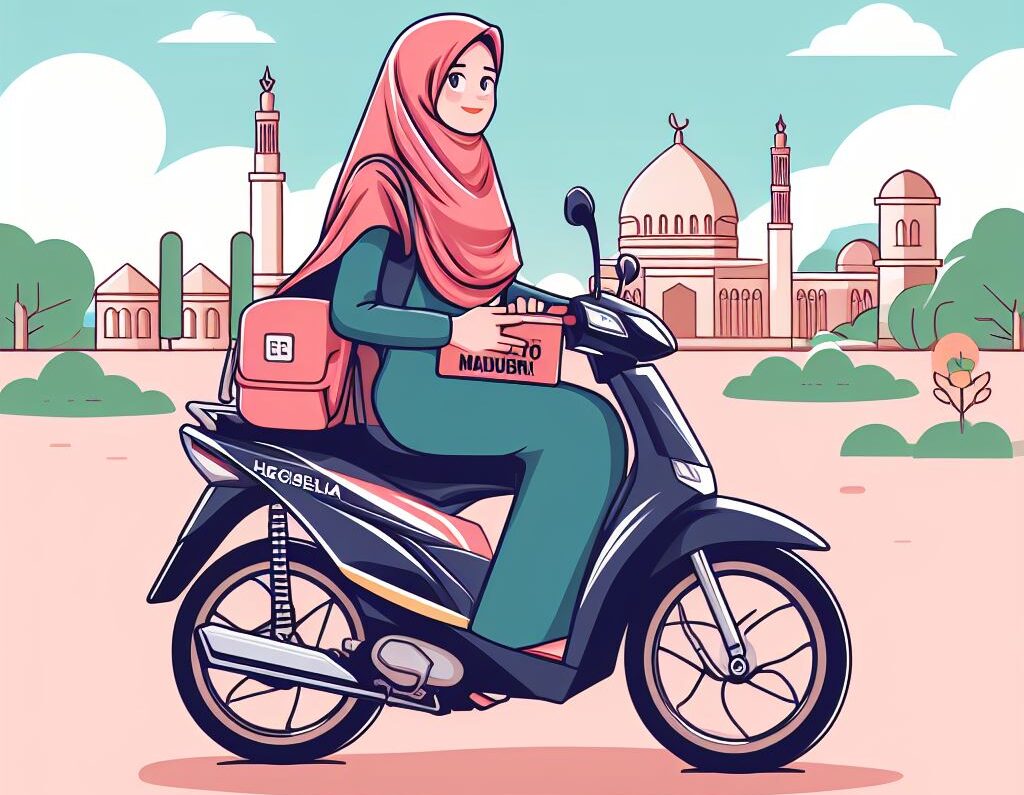Maryam Suleiman lost the use of her leg at the age of five. It started as a fever and later turned out to be a critical condition that rendered her unable to sit or walk independently.
Suleiman, who grew up at Ngomari Airport, Maiduguri, the Borno State capital, saw her parents take her to various hospitals within the city seeking treatment. Yet their efforts weren’t successful, and the doctors suggested amputating her legs.
While her father supported it, her mother refused, believing that someday a miracle would happen and her daughter would be able to walk. But that day has never come. The leg later became paralysed, and Suleiman had to start using a stick to aid her movement.
“It was a terrible experience for me. You see, I’m 30-years-old already. But despite all the challenges and stigma I encountered over the years, I’m still happy and pushing for a better life,” Suleiman said.
Learning profitable skills
In 2021, through the support of the Zadaya Kanem Polio and Disabilities Initiative, Suleiman enrolled in workshops that strengthened her knowledge and capacity on security, gender-based violence, and entrepreneurship, where she learned to make local handmade caps.
She has understood that learning profitable skills is essential, particularly for people like her who have a disability. With the help of the training, she is now a fashion designer.
“I sew people’s clothes and also make local handmade caps. As for the caps, I always advertise them on my WhatsApp status, and people come to buy them. I love it. It makes me feel happy and fulfilled,” Suleiman expressed.
According to the World Health Organisation, polio is a dangerous disease, usually affecting children under five. It’s highly infectious; one in every 200 infections leads to incurable paralysis.
Suleiman noted that since childhood, she had encountered discrimination due to her disability whenever she found herself in public places.
Often, people would underestimate her abilities while addressing her with demeaning words. However, these limitations didn’t let her give up on pursuing her dreams.
“I feel hurt sometimes when I’m being discriminated against, but I see it as an encouragement to put more effort into self-improvement and personal development,” Suleiman told Prime Progress.
Also, in 2022, Suleiman learned about mental health and trauma resilience from a workshop organised by the FeelNHeal initiative.
“The workshop has helped me to understand a lot of things. From then, I learned how to react to all the stigmatisation I may face and where to seek help too,” Suleiman stressed.
Despite hailing from a humble background, Suleiman’s parents saw the need to allow her to go to school, unlike other persons with disabilities in the country who beg for alms in the streets.
With their support and other philanthropic gestures, she can secure her way from primary school to the walls of the Borno State University, where she is pursuing an undergraduate degree in Islamic Religious Studies.
“I enjoy going to school because it’s not just about me. It’s about every other person with a disability who faces discrimination. I want to show them there are no limits to what we can achieve if we believe in ourselves and have the right support,” Suleiman remarked.
Supported with a mobility aid
Through the years and along her academic sojourn, Suleiman struggled with mobility.
In early 2023, a stranger’s act of kindness secured a tricycle for her, now enabling her to easily navigate her university campus and other functions in the city of Maiduguri.
Suleiman shared with Prime Progress that securing the tricycle is a dream come true for her.
“I used to struggle with movement, and on most occasions, people look down on me, or some don’t even want to sit closer to me inside public transport. So now, with the tricycle, I can move freely on my own,” she admitted.
Today, Suleiman is committed to screwing stereotypes and defying limitations. “I hope to prove to the world that disability doesn’t define one’s worth,” she concluded.
Maryam Suleiman lost the use of her leg at age five due to a severe health condition, leading to paralysis. Growing up in Maiduguri, her parents sought treatment unsuccessfully, and her mother resisted amputation in hope of a miracle. Despite challenges and stigma, Suleiman remains optimistic and pursues a better life.
In 2021, Suleiman, with the support of the Zadaya Kanem Polio and Disabilities Initiative, learned security, gender-based violence awareness, and entrepreneurship, becoming a fashion designer who makes handmade caps. She advertises her products on WhatsApp and finds fulfillment in her work.
Educated by her supportive parents, Suleiman attended school and is now studying Islamic Religious Studies at Borno State University. She faced discrimination due to her disability but uses it to fuel her self-improvement efforts.
In 2022, she attended a workshop by the FeelNHeal initiative on mental health and trauma resilience, learning to handle stigma and seek help when needed. In early 2023, a stranger's kindness provided her with a tricycle, significantly improving her mobility and independence.
Determined to challenge stereotypes and limitations, Suleiman aims to show the world that disability does not define one's worth.






